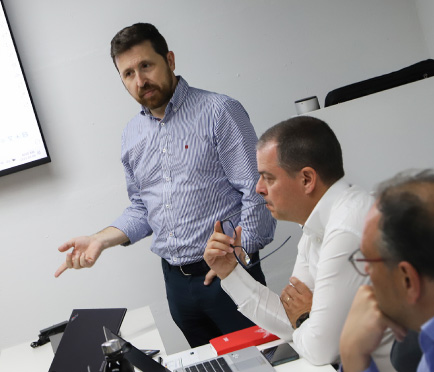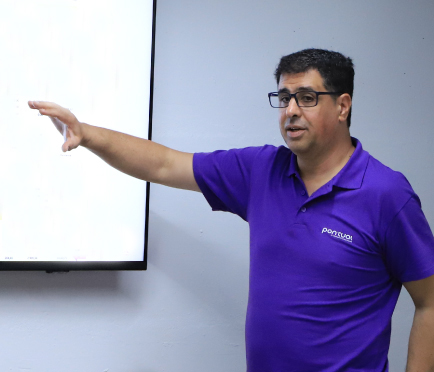With the explosion of tools like ChatGPT, Artificial Intelligence is at the forefront. How does this multidisciplinary field apply to the area of Enterprise Software? Is the Portuguese business sector ready to embrace change?
Many ERPs already use Artificial Intelligence (AI) in various ways, such as data analysis, task automation bots, among others. However, Generative AI—used in tools like ChatGPT or Bard—will soon have a significant impact on ERPs.
It will be possible, for example, to request financial or management information from the software for a specific period, and then draft an email with that data to send to the administration. The software can also generate a list of clients with debts and subsequently create an email based on prompts (those prompts) regarding the type of language, tone, and assertiveness of the message, to send to that list. There is also a wide range of possibilities in the area of predictive analysis.
The brands we work with, CEGID Primavera and Sage, have introduced functionalities in their software that represent significant investments in AI, with teams dedicated exclusively to these developments. On the other hand, we feel that clients want to take advantage of this technology. There is a market appetite, especially regarding process automation, but it’s important to understand the individual processes of companies and only then how AI can help. PONTUAL is investing in training its teams and working with manufacturers to make Enterprise Software tools not only increasingly useful to our clients but also truly transformative in their adaptation to new contexts.
The Impact of AI on Different Sectors
We believe that all sectors, and consequently, ERPs, will be affected, albeit at different rates. In the Industry sector, in which we specialize, we will see the optimization of MRP calculation processes, communication with the raw material supply chain, and the strengthening of predictive maintenance (instead of preventive). Quality controls and traceability will be automated with AI and Augmented Reality.
In Retail and Services, the greatest impact will be on demand forecasting, trends, and pricing definition, as well as optimizing stock management and needs. AI also streamlines Customer support through chatbots and virtual assistants that answer questions and perform simple tasks.
In the Transport and Logistics sector, we will see the optimization of routes, vehicle loads, and their arrangement. AI also impacts Health organizations, accelerating disease diagnosis, pattern discovery, and treatments from large data analyses.
The Financial, Human Resources, Education, and Agricultural sectors will also undergo significant changes and more optimized processes thanks to AI. Depending on aspects such as the volume of available data, technological investment, ethical and data privacy issues, and legislation, the transition will be more or less accelerated.
PONTUAL Looking to the Future
2023 is a landmark year for PONTUAL. We celebrate 30 years with a new image and reinforce our commitment to the operational efficiency of our clients. We will continue to invest in ERP integration and do so using automation tools and AI. In software development, AI will enable the creation of smarter solutions that adapt to constantly evolving needs.
Other crucial areas for PONTUAL, such as computer systems, cloud computing, infrastructure, and cybersecurity services, will continue to be a focus, and they too will benefit from these advances. All to increasingly bring more efficiency, security, and adaptability to companies that aspire to be at the forefront of technological innovation.
Opinion Article by Nuno Paiva, Chief Operating Officer of PONTUAL, published in issue no. 46 of IT Insight magazine.






